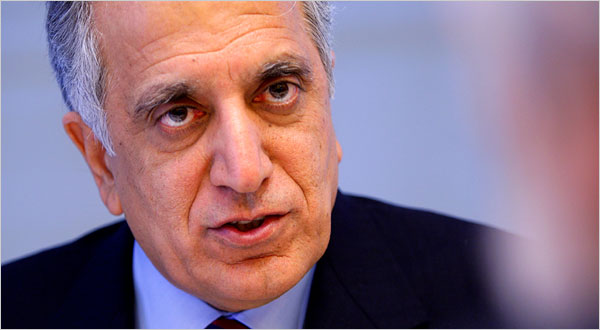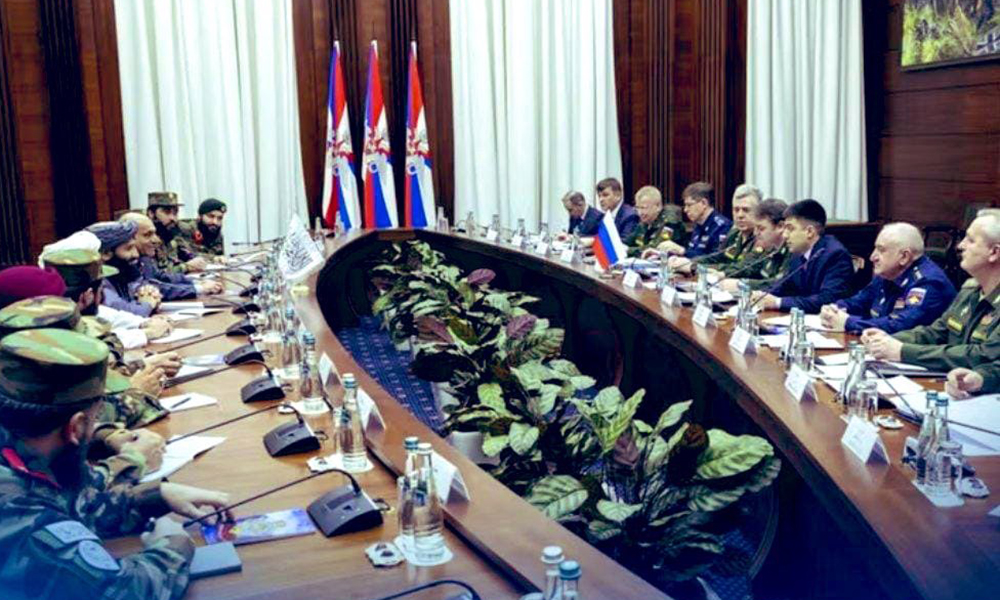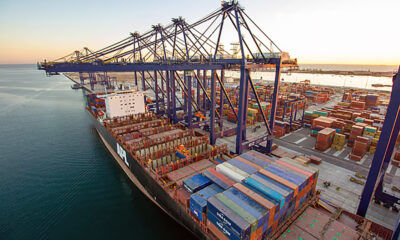Latest News
President’s Visit of China Creates a Long-Term Strategic Conundrum

Last week, Afghanistan’s new President, Ashraf Ghani, traveled to China for his first state visit abroad. Mr. Ghani’s calculation — that Beijing could offset the decline in American and Western support — creates a long-term strategic conundrum: Can Afghanistan attract Chinese investment and security assistance while avoiding the perils of excessive dependency on Beijing?
Mr. Ghani’s outreach to China is driven by a combination of short-term realities and long-term goals. The Western drawdown comes at a time when the Afghan government is neither fiscally self-sufficient nor capable of defeating the Pakistan-backed Taliban insurgency. In the short term, there is little alternative to international assistance to keep the Afghan state afloat.
In the longer term, however, Afghanistan hopes to leverage two of the country’s assets to achieve genuine stability and self-reliance: its natural resources and its strategic location, wedged as it is between Iran, Pakistan, China and the Central Asian states. The development of Afghan infrastructure could turn the country into a regional land bridge. Afghanistan would enjoy unimpeded access to regional and global markets while collecting transit fees from the region’s commercial activity.
Washington’s long-standing support hasn’t been enough to bring the land bridge concept to fruition. Although the United States has spent $4 billion constructing roads, the project requires far more money and political stability. The Asian Development Bank estimates that an additional $2 billion of investments in roads and transmission lines is required — and even more for pipelines, railways and upgrading regional infrastructure. Yet continuing security challenges are diverting attention and resources from the initiative.
China is perhaps the only power with the incentives, resources and national will to make Afghanistan’s ambitious vision a reality. Beijing has already made sizable investments in Afghan copper and oil — including a $3 billion agreement to develop the Aynak copper mine. China is eyeing Afghan natural gas. Western companies, lacking sufficient state backing from their governments, have proven unwilling or unable to make comparable investments. If Beijing were to invest in the country’s infrastructure, new transit corridors would facilitate Chinese trade westward to Iran and the Middle East, and south to the Gwadar port in Pakistan.
Despite the fact that an Afghan land bridge would give Pakistan access to Central Asian markets and products, American pressure alone has not persuaded Islamabad to abandon its support for militants. Pakistan’s civilian leaders are increasingly open to a settlement between the Afghan government and the Taliban. But the overall lack of progress on reconciliation is saddling the United States with the disproportionately large cost of supporting Afghanistan’s security forces.
Pakistani intransigence has strengthened Afghanistan’s case for engagement with China. Since 2001, China has largely stayed on the sidelines as the United States has assumed the heavy lifting on the counterterrorism front. China has pursued its economic interests in Afghanistan while benefiting from the security provided by the American military presence. At the same time, China has maintained friendly relations with Pakistan and has refused to lean on the Pakistani military to change its ways.
Continue reading the main storyContinue reading the main storyContinue reading the main story
Recently, however, there have been signs that Chinese policy is changing. Beijing has indicated that it opposes the Taliban’s return to power and believes that the Taliban’s participation in the political system should be contingent on its renunciation of violence. China has even offered to mediate discussions between Kabul and the Taliban, a sign that it no longer sees its relations with Afghanistan simply as an extension of its ties to Pakistan. Beijing is also promoting the idea of a regional forum for Afghan reconciliation and favors establishing trilateral meetings between China, Afghanistan and the United States.
The Afghan government has so far welcomed Chinese efforts to promote reconciliation. The Taliban’s reaction, which will be influenced by the outcome of talks between Beijing and Islamabad, remains uncertain. Given that China, unlike America, has earned the Pakistani military’s trust over many decades, Beijing is better positioned to bring about a shift in Pakistani policy.
Security interests have been the most important factor in China’s reassessment. Beijing is belatedly coming to terms with the threat Islamic extremists pose to China’s territorial integrity. Terrorists in China’s restive Xinjiang province are training in Pakistani camps and honing military skills through their experience in Afghanistan. China fears that with the American withdrawal, Afghanistan will become a bigger sanctuary for anti-Chinese extremists. The fact that Chinese separatism is becoming a global Islamist cause has not escaped Beijing’s notice; the Islamic State has already vowed to “liberate” Xinjiang.
Economic and security aid from China is not without risks. Afghan institutions may not be strong enough to ensure that Chinese investors meet their contractual obligation to put Afghans to work, meet international environmental and health standards, and protect heritage sites.
And if America’s relations with China deteriorate, Afghanistan might be forced to make a choice. The threat of becoming dependent on China would be particularly acute if the United States were to disengage from Afghanistan. Indeed, during the early years of the Cold War, Afghanistan benefited from the simultaneous infusion of American and Soviet foreign assistance until Washington made a fateful decision to cede the country to Soviet influence.
These concerns are not an argument against expanding ties with China. But they underscore the geopolitical factors at play. Afghanistan must ensure that closer ties to China don’t come at the expense of its partnership with the West.
Washington will have to play its part by participating in the proposed trilateral forum. But it must avoid the temptation to abandon Afghanistan once again and thereby cede wider regional influence to China.
Zalmay Khalilzad was the United States ambassador to Afghanistan, Iraq and the United Nations.

Latest News
FAO, ADB launch $100 million food security program in Afghanistan
Over 151,000 rural households will benefit through support for crop production, livestock protection, and livelihood recovery.

The Food and Agriculture Organization of the United Nations (FAO), in partnership with the Asian Development Bank (ADB), has launched a $100 million initiative to strengthen food and nutrition security and restore agricultural livelihoods across Afghanistan.
FAO said the two-year program will support more than one million vulnerable people, including returnees from Pakistan and Iran, host communities, and families affected by recent earthquakes and floods.
Over 151,000 rural households will benefit through support for crop production, livestock protection, and livelihood recovery.
Agriculture remains central to Afghanistan’s rural economy but faces persistent challenges such as low productivity, damaged irrigation systems, limited access to quality inputs, and climate shocks.
FAO estimates that in 2026, 17.4 million people will face acute food insecurity, with 4.7 million in emergency conditions, as drought and anticipated La Niña impacts worsen conditions.
The initiative will focus on climate-smart, people-centered approaches, with special attention to women-headed households and the most vulnerable provinces.
The program builds on the long-standing FAO-ADB partnership. Since 2022, ADB has provided about $265 million in grants through FAO, reaching 5.6 million people across the country.
FAO said the initiative aims to link immediate food assistance with longer-term resilience to help Afghan families withstand future crises.
Latest News
Australia announces $50 million in new humanitarian aid for Afghanistan

Australia has pledged an additional $50 million in humanitarian assistance for Afghanistan as the country continues to face a severe humanitarian crisis.
In a joint statement on Wednesday, Foreign Minister Penny Wong and International Development Minister Anne Aly said the funding will focus on addressing urgent needs, particularly among women and girls.
The new allocation brings Australia’s total humanitarian support to Afghanistan since 2021 to $310 million. Nearly 22 million people in the country are in urgent need of aid due to economic collapse, food insecurity and ongoing restrictions.
Wong said Australia’s support aims to save lives and meet basic needs, while Aly noted the assistance will be delivered through trusted international partners.
The funding will be channelled through agencies including the World Food Programme and the UN Office for the Coordination of Humanitarian Affairs. Afghanistan remains heavily reliant on international aid as millions continue to face hunger and limited access to healthcare.
Latest News
Russian and Afghan defense officials meet in Moscow, pledge closer cooperation
The meeting focused on the current situation and prospects for expanding cooperation in areas of mutual interest between the two sides.

Russian media, citing the country’s Ministry of Defense, report that Vasily Osmakov, Russia’s Deputy Defense Minister, held talks on Wednesday in Moscow with Mohammad Farid, the Deputy Defense Minister of the Islamic Emirate of Afghanistan for Strategy and Policy.
According to the reports, the meeting focused on the current situation and prospects for expanding cooperation in areas of mutual interest between the two sides.
Russian sources said that at the conclusion of the talks, both parties agreed to take further joint steps aimed at establishing more regular and systematic cooperation.
So far, the Islamic Emirate of Afghanistan has not issued an official statement regarding the meeting or its outcomes.
-

 Sport3 days ago
Sport3 days agoThrilling battles await as AFC Futsal Asian Cup Indonesia 2026 set to kickoff in hours
-

 Sport5 days ago
Sport5 days agoAfghanistan futsal team arrives in Indonesia ahead of Asian Cup
-

 Sport2 days ago
Sport2 days agoAFC Futsal Asian Cup 2026: Day One Review
-

 Regional4 days ago
Regional4 days agoAirlines reroute, cancel flights as tensions ramp up over Iran
-

 Sport5 days ago
Sport5 days agoJapan defends AFC U-23 Asian Cup title with dominant win over China
-

 Business4 days ago
Business4 days agoPakistan reports 56% drop in exports to Afghanistan in second half of 2025
-

 Sport2 days ago
Sport2 days agoAfghanistan’s Mahdi Norouzi ruled out of AFC Futsal Asian Cup due to injury
-

 Sport2 days ago
Sport2 days agoScotland name Afghanistan-born Zainullah Ihsan in T20 World Cup squad















